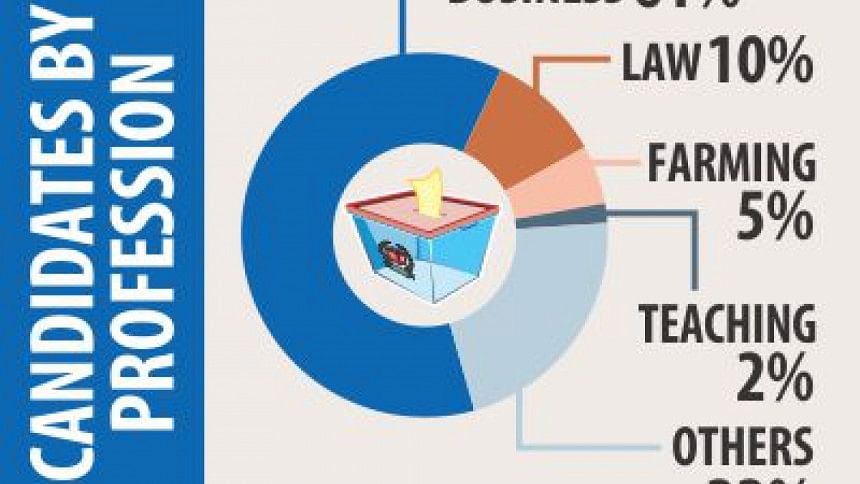
Businessmen are likely to retain their dominance in the next Jatiya Sangsad.
Participation of a large number of businessmen in the polls indicates that their presence in the new parliament will be overwhelming and money will influence the election.
In the alliances led by the Awami League and BNP, around 62 percent of the contestants are businessmen, according to the data from 286 of 300 constituencies.
The Daily Star accumulated the data by analysing the affidavits of 572 nominees of the two tents. Information about aspirants of 14 seats is not available yet.
Things were different in the years following the country's independence.
Law, business and farming were the three most common occupations of the lawmakers elected to the country's first parliament in 1973. Of the MPs in that parliament, 31 percent were lawyers and 18 percent were businessmen.
But the rise of businessmen in politics took place over the decades, particularly after the restoration of the country's democracy, following the ouster of the autocratic Ershad regime in December 1990.
In the fifth parliament constituted through the election of 1991, businessmen outnumbered lawyers. In that parliament, 38 percent were businessmen and 15 percent lawyers.
In the 2008 polls, 57 percent of the lawmakers elected were businessmen. That was the last competitive and participatory election. The 2014 election was boycotted by most of the parties, but the number of businessmen increased.
Political analysts say the major political parties' dependency on businessmen has effectively turned politics itself into a business.
Addressing a rally on October 12, 2015, President Abdul Hamid decried this trend. “It's a matter of regret that today's politics has gone into the pockets of businessmen…. We have to get rid of it.”
The trend negatively impacted the functioning of parliament.
"In our neighbouring country, India, parliament sits in the morning. But in our case, as most of the MPs are businessman, the parliamentary session in most of the time starts in the afternoon because businessmen lawmakers remain busy with their business the whole day," said parliamentary affairs expert Prof Nizam Ahmed, a teacher of public administration at Chittagong University.
Despite limitations imposed by the article 70 of the constitution, MPs still can play an important role in the parliamentary committees that enjoy the power to hold the government accountable, he said.
“From our experience, businessmen cannot give enough time in politics and they are also not that much serious in parliamentary functions.
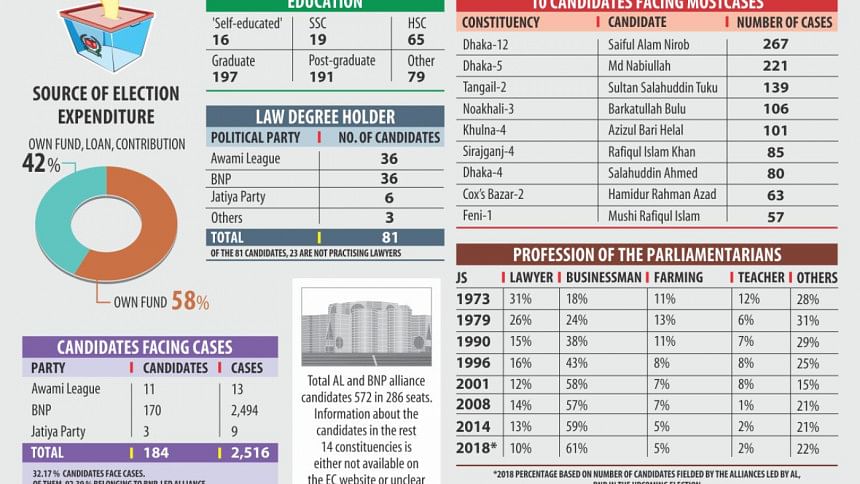
“Businessmen join politics to become politician but now a days we see people joining politics to become businessmen within a very short span of time,” he told The Daily Star yesterday.
There is no substitute to full-time politicians in an effective parliament, he added.
According to available data, only 12 nominees of the two major alliances are full-time politicians.
Political science professor at Jahangirnagar University Al-Masud Hasanuzzaman said the number of businessmen in politics is increasing because money dominates politics.
The data gathered by The Daily Star from the nomination forms also exposed how money plays a role in the polls.
In the nomination forms, they mentioned the sources of the money they would spend for campaigning.
As many as 329 of 572 candidates mentioned that they would not need to depend on others for election expenditure. They can spend up to Tk 25 lakh each.
The remaining 243 say they will meet their election expenditure from their own sources as well as contributions from relatives and friends.
In the December 30 polls, a candidate can spend Tk 10 per voter for electioneering. The ceiling of maximum expenditure is Tk 25 lakh, even if the number of voters in a constituency is more than 2.5 lakh, according to a notification issued by the Election Commission.
But exceeding the limit of expenditure is an “open secret”. None of the past ECs had been able to take any effective measures to contain the influence of unauthorised money in electioneering.
A Transparency International Bangladesh (TIB) study on the 2008 parliamentary polls revealed that candidates who contested the ninth parliamentary election spent about Tk 30 lakh each on average in excess of the expenditure limit set by laws.
The study published in April 2009 also said the money was spent for campaigning between the last day for withdrawal of nomination and day of the voting. Electoral laws had allowed a candidate to spend a maximum of Tk 15 lakh. The EC had fixed Tk 5 per voter.
Money spent beyond the limit is considered to be unauthorised money in polls.
Election experts fear that influence of such unauthorised money may appear as a major obstacle to ensuring a level-playing field for all political parties and candidates in the campaign that began on Monday and will continue until December 28 midnight.




 For all latest news, follow The Daily Star's Google News channel.
For all latest news, follow The Daily Star's Google News channel. 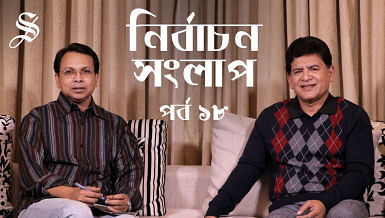
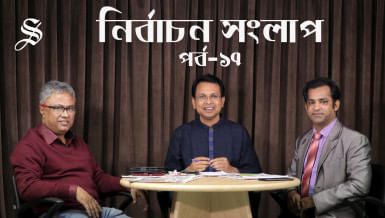
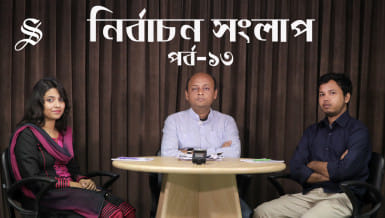
Leave your comments